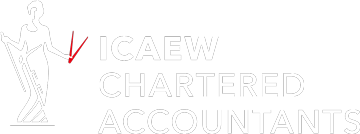Overview of the E-Commerce industry within the UK
The rise of E-Commerce industry within the UK ha had entrepreneurs not only mastering the art of online sales but also look into ensuring that they are complying within the tax guidelines set out by HMRC.
The revolution of technology has continued to stimulate the development of the Digital Ecosystem, focusing on the creation of adaptive platforms for collaboration & operational excellence, with most prominent examples being of Amazon, Ebay and Etsy which have grown exponentially to become leaders in the industry. This enormous growth of digital technologies has resulted into the shift of industries from traditional business models to data driven models supported by Information Technology, Data Insights & Artificial Intelligence. This has completely changed consumer perceptions & market dynamics causing a magnanimous shift in competition & practices due to therise in E-Commerce businesses in the UK.
The strategic planning of taxes is a cornerstone for sustainable business growth and profitability. Here at Majestic Accountants, we can guide you through effective tax planning for your E-commerce business, ensuring that you are well rounded within the guidelines set out by HMRC.
Importance of Strategic Tax Planning for E-Commerce Businesses
Strategic tax planning emerges as a paramount factor for sustained success. Navigating through UK tax guidelines requires a proactive approach, particularly for E-Commerce Businesses. As specialists within this field our expertise covers the diverse tax categories, ensuring that you understand the importance of strategic tax planning.
Effective tax planning not only ensures compliance with HMRC but becomes a crucial element for financial agility and growth within your business. It empowers E-commerce enterprises to enhance their overall tax positions, manage liabilities, and sustain overall profitability in the business. By understanding the different tax categories such as Income Tax, Value Added Tax (VAT) and Corporation Tax, businesses can achieve a competitive edge in the marketplace.
Moreover, strategic tax planning allows E-commerce businesses to navigate the complexities of other relevant taxes and duties, providing a comprehensive approach to financial governance.
Understanding the UK Tax System
The foundation of effective tax planning begins with a comprehensive understanding of the different taxes applicable to your E-commerce business.
Key tax obligations for E-commerce businesses in the UK
- Corporation Tax
E-commerce businesses, irrespective of size, must grapple with Corporation Tax. Understanding the applicable rates and allowances each tax year is crucial for accurate financial projections to ensure profitability within your business. In recent years Corporation Tax was fixed at 19% of the business net profits, however HMRC have implemented changes within this percentage. Depending on your business profit the tax rate now ranges from 19% to a staggering 25%. - Value Added Tax (VAT)

- VAT is one of the main taxes that many E-commerce businesses are struck with, business owners have to keep track of their total revenue on a bi/weekly/Monthly basis. As the business turnovers £85,000 in sales, it must register with HMRC for VAT. This triggers a 20% VAT charge payable to HMRC on each sale that the business has made. Monitoring the sales is a crucial element for profitability within your business as margins will be cut by 20% once a business is registered for VAT.
- Other relevant taxes and duties
The thriving e-commerce industry goes beyond Corporate Tax and VAT to managing a spectrum of additional taxes & duties that impact the online business community. Majestic Accountants can assist your business to ensure that your e-commerce venture remains agile, well-prepared, and fully compliant with the array of taxes and duties relevant to online operations in the UK.
Incorporation and Structure
Choosing the right business structure is crucial, which not only lays foundation for effective tax management but also provides a breakthrough for businesses for sustainably growth within the industry. Let’s delve into key considerations related to incorporation and business structure for e-commerce ventures in the UK.
- Sole trader: A viable option for smaller e-commerce businesses, offering simplicity & full control. However, personal liability & limited tax planning options are great concerns of sole traders.
- Partnership: Ideal for business ventures with multiple owners that enjoy shared responsibility. Like sole traders, partnerships lack a distinct legal identity, potentially exposing individuals to personal liabilities.
- Limited company: This structure is usually the preferred by a majority for e-commerce businesses due to the limited liability protection element. This incorporation structure offers a diverse range of tax planning opportunities, shielding business owners from personal liability since the company is a separate legal entity
Implications for taxation
Incorporating your e-commerce business in the UK is a pivotal step for effective tax planning. By choosing the right business structure, such as a limited company, and understanding the associated tax implications, you can unlock numerous benefits. From limited liability protection to strategic tax efficiency, the right approach can propel your e-commerce venture toward sustainable growth.
Benefits of incorporating for tax planning purposes
- Limited Liability Protection: Incorporating your e-commerce business provides a crucial layer of protection. As a limited company, personal assets remain separate, shielding owners from business-related liabilities. This separation is invaluable for tax planning and risk management.
- Effective Tax Planning:
 Limited companies enjoy more diverse tax planning options. Directors can optimise their income through a combination of salary and dividends, taking advantage of tax allowances and thresholds. Flexible pension contributions, succession planning, entrepreneur’s relief are other avenues for purposes of tax planning & wealth accumulation.
Limited companies enjoy more diverse tax planning options. Directors can optimise their income through a combination of salary and dividends, taking advantage of tax allowances and thresholds. Flexible pension contributions, succession planning, entrepreneur’s relief are other avenues for purposes of tax planning & wealth accumulation. - Access to Group Structures, International Expansion and Tax Efficiency: Group structures provide organisational flexibility and potential tax synergies. Limited companies often find it easier to expand internationally. They can establish subsidiaries or branches abroad, taking advantage of favorable tax regimes in different jurisdictions. This international flexibility enhances tax planning opportunities for e-commerce businesses with global aspirations.
VAT Considerations for E-commerce
Thresholds for VAT registration: E-commerce businesses must monitor their taxable turnover closely. Crossing the £85,000 annual threshold mandates VAT registration. Proactive monitoring ensures compliance, avoiding penalties and supporting seamless financial operations.
Implications of distance selling: E-commerce transcends geographical boundaries, and so do the VAT implications. For cross-border transactions post-Brexit, understanding distance selling thresholds is crucial. E-commerce ventures should grasp the implications to ensure compliance and navigate complexities associated with goods sold and dispatched between EU countries.
VAT rates applicable to e-commerce transactions: Navigating the varied VAT rates in the UK is key for e-commerce businesses. Accurately categorizing products or services and applying the correct VAT rate is fundamental for tax optimization. Awareness of reduced or zero-rated VAT for specific transactions enhances competitiveness.
VAT record-keeping: Meticulous record-keeping is foundational for effective tax planning. Utilising a modern accounting software such as QuickBooks & Xero to automate and minimize errors in recording sales, purchases, and VAT payments. Accurate records not only ensure compliance but also provide a reliable basis for informed financial decision-making.
Incorporating your e-commerce business in the UK not only provides a robust tax structure but also unlocks a myriad of tax planning opportunities.
Consequences of non-compliance
Non-compliance with VAT regulations can have significant repercussions for E-commerce businesses including but not limited to financial penalties, legal consequences & reputational risk. Understanding and mitigating these consequences is an integral part of tax planning.
Deadlines for Tax Submissions
Effective tax planning for e-commerce businesses involves understanding VAT submission deadlines. In the UK, VAT returns are typically submitted quarterly. For E-commerce businesses, this means staying on top of your financial records and ensuring that your transactions are accurately recorded within each quarter.
In a nutshell, E-commerce tax planning in the UK revolves around VAT essentials. Monitoring turnover for timely registration, understanding distance selling implications, navigating VAT rates, and prioritizing accurate record-keeping collectively contribute to a robust tax strategy.
Let’s collaborate, Majestic Accountant Ltd can assist your business in sustainable growth. Through incorporating these above considerations, e-commerce businesses can ensure compliance and proactively optimize their position for sustainable financial growth.












